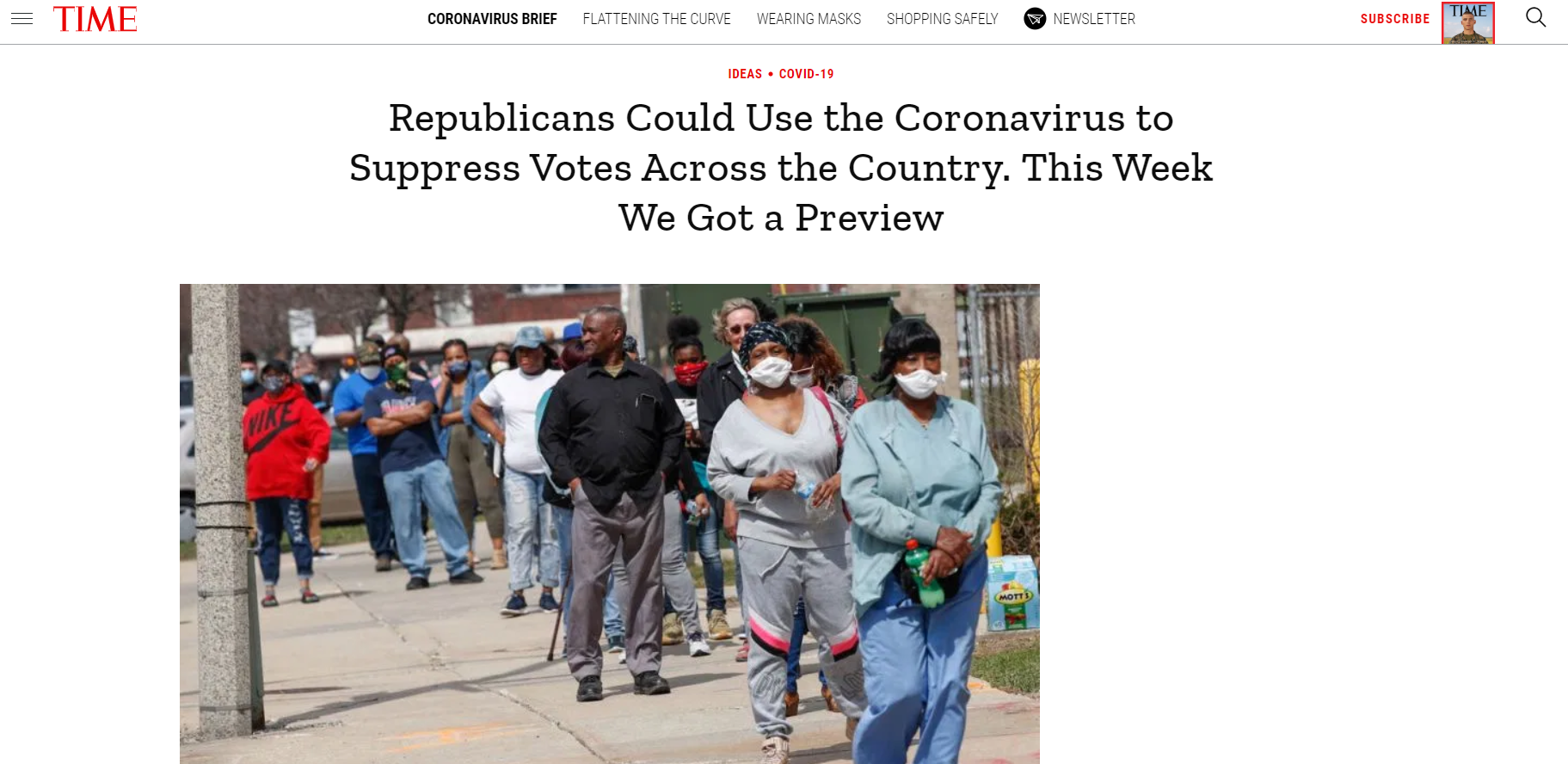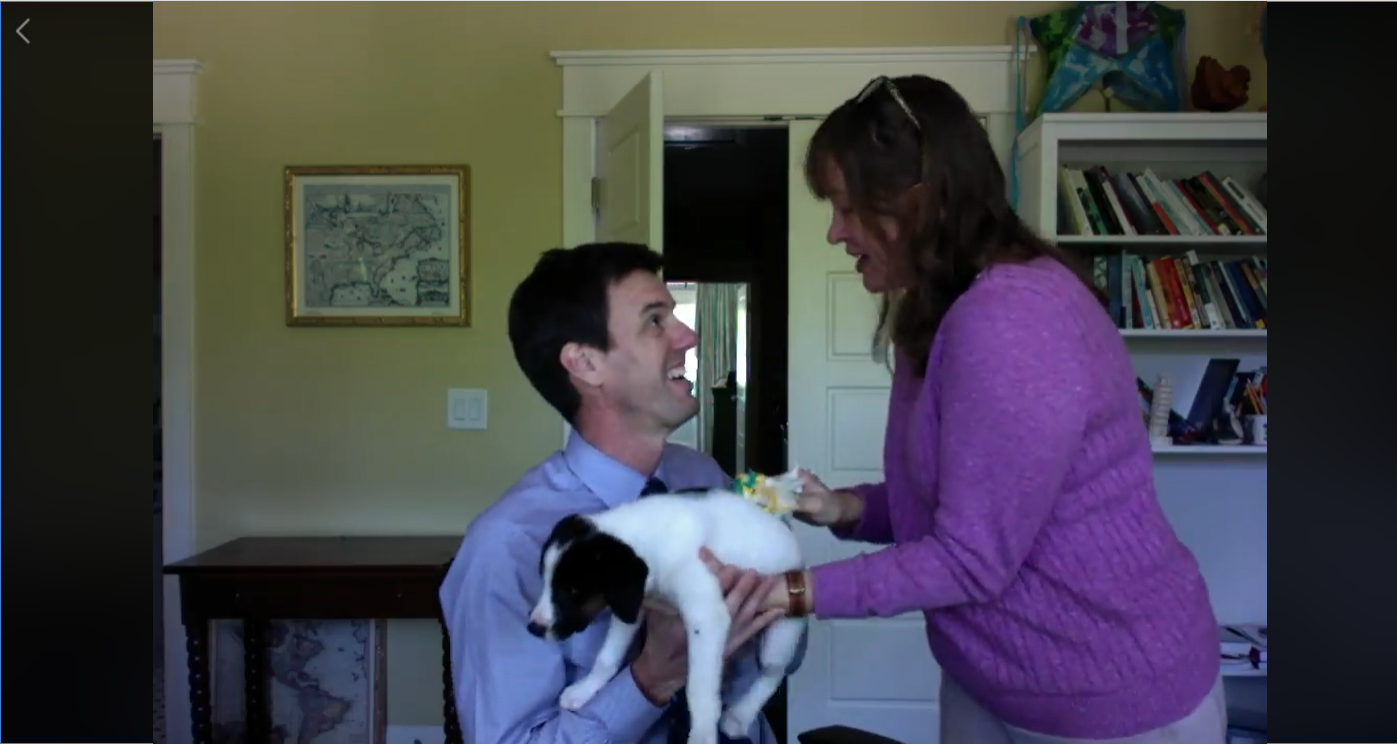Dr. Patrick N. Allitt, Cahoon Family Professor of American History, has contributed eight lecture series to the website The Great Courses. Each day the editors of that site apply content from one of their courses to a current event making headlines. This past week they featured content from Allitt’s “History of the United States” course for a piece entitled “COVID-19 Prompts Look at the Past and Future of City Life.”
Category / COVID-19
‘Classes that Click’: Emory News Center Features Crais’s Virtual ‘The Making of Modern South Africa’

The Emory News Center’s Leigh DeLozier recently featured Dr. Clifton Crais, graduate assistant Georgia Brunner, and several students from his “Making of Modern South Africa” class. Crais, Brunner, and the students share their perspectives on finding success in the online transition. Read an excerpt from the article below, along with the full piece: “Classes that click: The making of modern South Africa.”
What’s one lesson you’ve learned during this transition, and how will you use it later?
Crais: The importance of human contact and our common humanity, beginning with the simple act of looking into another person’s eyes. I will renew my effort to develop a unique relationship with each and every student, no matter how large the class. Paradoxically, online teaching has taught me the importance of a residential college experience. We are learning new things about the world and about each other. We are going to come out of this crisis better teachers and better students – and citizens.
Department Chair Crespino Offers “Tips” on Productivity
History Department Chair and Jimmy Carter Professor of History Joseph Crespino recently took to Facebook to offer a few thoughts on productivity in the midst of the COVID-19 pandemic. Enjoy his “tips” on the Emory History Facebook page.
Addressing Anti-Asian Racism and COVID-19: A Discussion with Dr. Chris Suh and APIDA

The Asian Pacific Islander Desi American (APIDA) Activists at Emory have invited Assistant Professor Chris Suh to join them for a discussion forum on anti-Asian racism and COVID-19. The event will take place this Wednesday, April 15, from 7 – 8pm. The Zoom link to the discussion is available on the APIDA facebook site.
Strocchia’s FYS, ‘Epidemics in History,’ Brings Historical Insights to Unfolding Pandemic
Dr. Sharon T. Strocchia, Professor of History, is teaching a first-year seminar titled “Epidemics in History” this spring. The COVID-19 pandemic has made the course far more timely than she or the students anticipated. The Emory News Center featured “Epidemics in History” among Emory courses where professors and students are using the pandemic as a learning opportunity. Read about all of those courses in their article, “COVID-19 in Class.” Strocchia also offered comments on her original idea for the class and how she modified it in order to investigate this historical moment in real time. Read her comments below.
My freshman seminar this semester, “Epidemics in History,” was not designed to coincide with a global pandemic. I did plan to end the course with a study of the 1918 influenza epidemic after examining the Black Death and nineteenth-century cholera outbreaks. Our goal was to explore the historical and biological effects of urbanization, environmental change, and the human connectivity resulting from faster modes of transportation. But I also wanted to raise issues of preparedness with my students, many of who planned careers in medicine and science. It seemed oddly serendipitous that the Wuhan outbreak of coronavirus hit the headlines just as spring semester started. At our first class meeting in January, we decided that tracking its progression would make a good class project. Relying on trusted news outlets, we learned the value of social distancing, good hand hygiene, and flattening the curve. Week by week, the news grew more startling but still seemed far from home. By the time spring break arrived, though, COVID-19 already had an official name and the world was on the verge of pandemic. We’ve since modified our syllabus to make direct comparisons between the experiences of 1918 and our own day, looking at public health policies, frontline healers, issues of fear and resilience. It’s been a rewarding but sobering experience—one that shows there’s much to be learned about health and society from studying the past.
– Sharon Strocchia
Dr. Polly J. Price, Associated Faculty in History, Discusses Jurisdiction and COVID-19 on CNN
Dr. Polly J. Price is the Asa Griggs Candler Professor of Law, Professor of Global Health, and Associated Faculty in the History Department. Price recently contributed to a CNN segment with host Michael A. Smerconish about jurisdiction in the context of stay-at-home orders and social distancing measures intended to curb the spread of COVID-19. View the segment here: “Why is there no national lockdown?”
Price is a public health law scholar as well as a legal historian and citizenship and immigration law expert. Her current book project, Plagues in the Nation (forthcoming from Beacon Press), examines how epidemics have shaped US law and continue to pose challenges for disease control in democratic societies. In recent weeks Price has also authored two pieces for The Atlantic: “A Coronavirus Quarantine in America Could Be a Giant Legal Mess” and “How a Fragmented Country Fights a Pandemic.”
Carol Anderson on COVID-19 and Voter Suppression in ‘Time’

Dr. Carol Anderson, Charles Howard Candler Professor of African American Studies and Associated Faculty in the History Department, has written an article in Time titled “Republicans Could Use the Coronavirus to Suppress Votes Across the Country. This Week We Got a Preview.” Anderson’s piece examines how stay-at-home orders prompted by COVID-19 could lead to the disenfranchisement of voters in primary elections and may portend the same for the general election in November. Anderson is the author, most recently, of One Person, No Vote: How Voter Suppression is Destroying Our Democracy, which was published by Bloomsbury and a finalist for the PEN/Galbraith Award in Non-fiction and a National Book Award Longlist finalist in Non-fiction.
Emory History Department Updates in the Context of COVID-19
Emory University will extend spring break until March 22, after which the institution will transition to remote learning for graduate and undergraduate classes. Visit Emory’s COVID-19 page for details about these changes, and please contact History Department faculty and staff via email with individual questions or concerns. History Department staff and faculty will work remotely for the next several weeks.
All History Department seminars, workshops, and book events have been canceled for the remainder of the semester, including the History Department Workshop scheduled for this Friday, March 20, featuring Dr. Thomas D. Rogers and Dr. Jeffrey T. Manuel, and the celebration of Dr. Sharon Strocchia’s recently-published monograph, Forgotten Healers: Women and the Pursuit of Health in Late Renaissance Italy, slated for next week. In lieu of the in-person events featuring these works, check out two recent posts about them:
